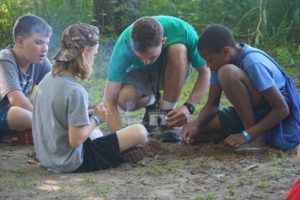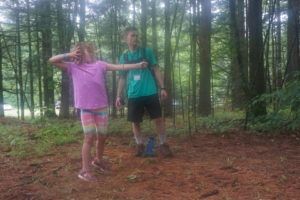Male Counselors and Kitchen Staff Needed
Although it may not feel like it outside, summer is fast approaching. As we continue to make preparations for our summer camp down at Cedar Lake, it is becoming crunch time for hiring our camp staff. We still have several job openings with the most crucial needs being male counselors and kitchen staff.
In the kitchen, we are looking for a lead cook and a kitchen assistant. These two positions are essential not just for the operation of the program; they also make a difference in the morale of the program.
As many of you know after spending the day outside enjoying the outdoors, coming inside to a delicious meal is often the icing on the cake to a great day. The kitchen positions at camp provide that for our campers and our staff. These positions are in charge of ordering food, cooking and cleaning up after each meal. These are paid positions with meals and housing included, but it is not required to live on-site at camp.

The other area of immediate need for our staff is male counselors. We need at least 3 male counselors to supervise our male campers in the cabins each night as well as to help lead the programming with their female counterparts during the day. The counselor’s role is to serve as a positive outdoor role model. Engaging and teaching our campers to be safe and ethical outdoor users as well as helping them to grow as people. These positions are also paid with room and board provided. Male counselors must live on-site during the week to supervise overnight campers, but they will have 48 hours off on the weekends as well as a break during a portion of each day on site.

Pay at camp ranges from $400-550/week, depending on the job and its role. Staff is provided everything they need, including room, board and uniforms. We will also pay for the required CPR/first aid training. There is also a PAID week of staff training where we teach them what they will need to know in regards to camper management, outdoor skills and professional development for life beyond camp.
If you or someone you know is interested, please reach out directly to camp director Ashley Carmichael at acarmichael@mucc.org.
The post Male Counselors and Kitchen Staff Needed appeared first on Michigan United Conservation Clubs.
Recent Posts



